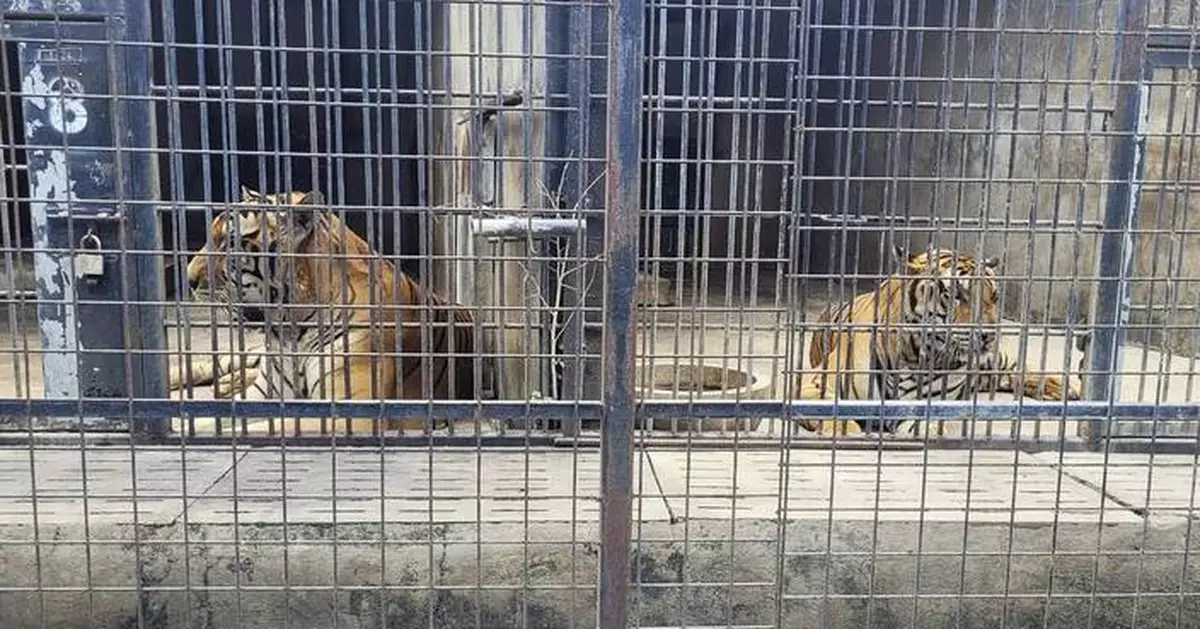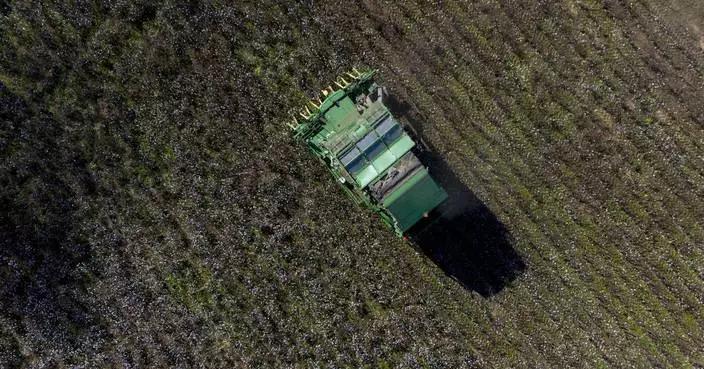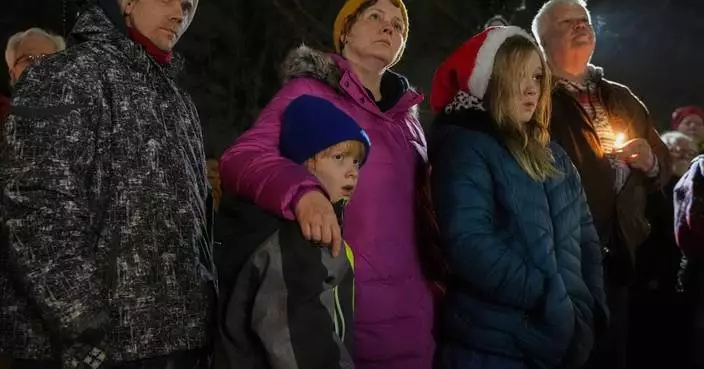HANOI, Vietnam (AP) — More than a dozen tigers were incinerated after the animals contracted bird flu at a zoo in southern Vietnam, officials said.
State media VNExpress cited a caretaker at Vuon Xoai zoo in Bien Hoa city saying the animals were fed with raw chicken bought from nearby farms. The panther and 20 tigers, including several cubs, weighed between 10 and 120 kilograms (20 and 265 pounds) when they died. The bodies were incinerated and buried on the premises.
“The tigers died so fast. They looked weak, refused to eat and died after two days of falling sick,” said zoo manager Nguyen Ba Phuc.
Samples taken from the tigers tested positive for H5N1, the virus that causes bird flu.
The virus was first identified in 1959 and grew into a widespread and highly lethal menace to migratory birds and domesticated poultry. It has since evolved, and in recent years H5N1 was detected in a growing number of animals ranging from dogs and cats to sea lions and polar bears.
In cats, scientists have found the virus attacking the brain, damaging and clotting blood vessels and causing seizures and death.
More than 20 other tigers were isolated for monitoring. The zoo houses some 3,000 other animals including lions, bears, rhinos, hippos and giraffes.
The 30 staff members who were taking care of the tigers tested negative for bird flu and were in normal health condition, VNExpress reported. Another outbreak also occurred at a zoo in nearby Long An province, where 27 tigers and 3 lions died within a week in September, the newspaper said.
Unusual flu strains that come from animals are occasionally found in people. Health officials in the United States said Thursday that two dairy workers in California were infected — making 16 total cases detected in the country in 2024.
“The deaths of 47 tigers, three lions, and a panther at My Quynh Safari and Vuon Xoai Zoo amid Vietnam’s bird flu outbreak are tragic and highlight the risks of keeping wild animals in captivity,” PETA Senior Vice President Jason Baker said in a statement sent to The Associated Press.
“The exploitation of wild animals also puts global human health at risk by increasing the likelihood of another pandemic,” Baker said.
Bird flu has caused hundreds of deaths around the world, the vast majority of them involving direct contact between people and infected birds.
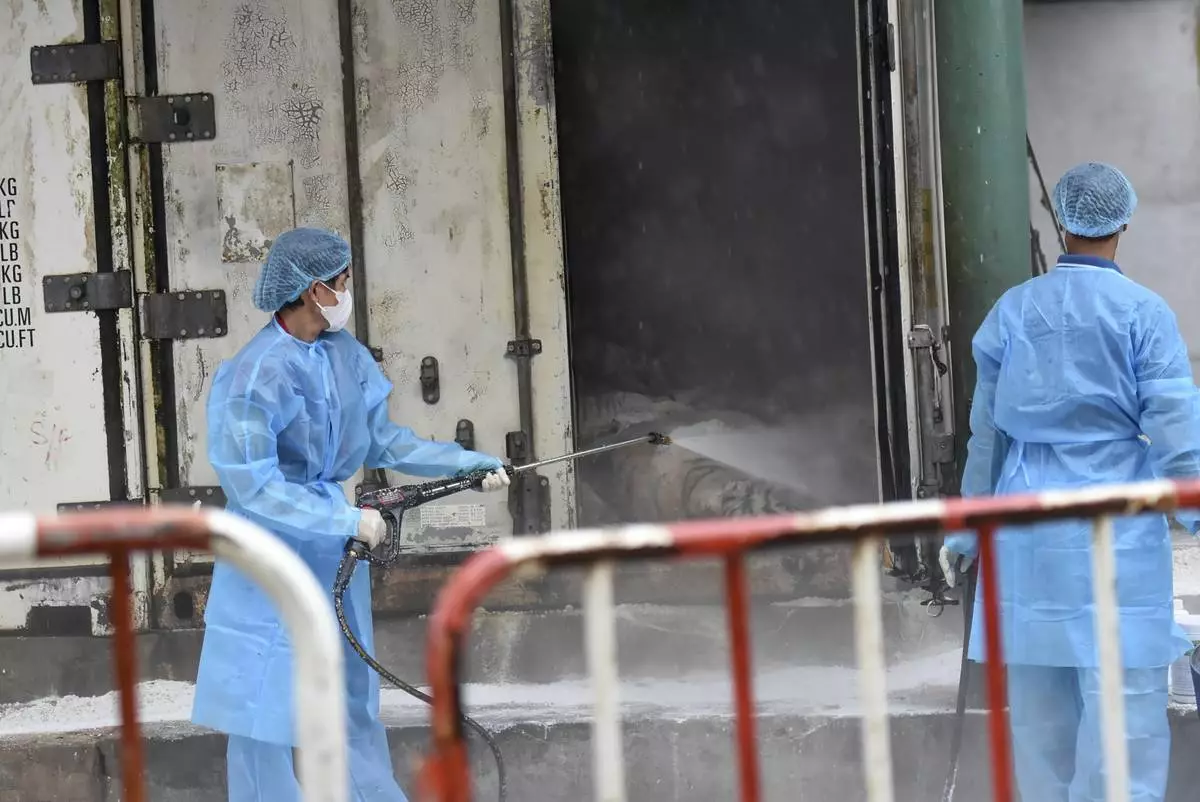
CORRECTS NAME OF ZOO- Animal health workers spray disinfectant after tigers died of bird flu at Vuon Xoai zoo in Bien Hoa city, Vietnam on Thursday, Oct. 3, 2024. (Phuoc Tuan/VNExpress via AP)
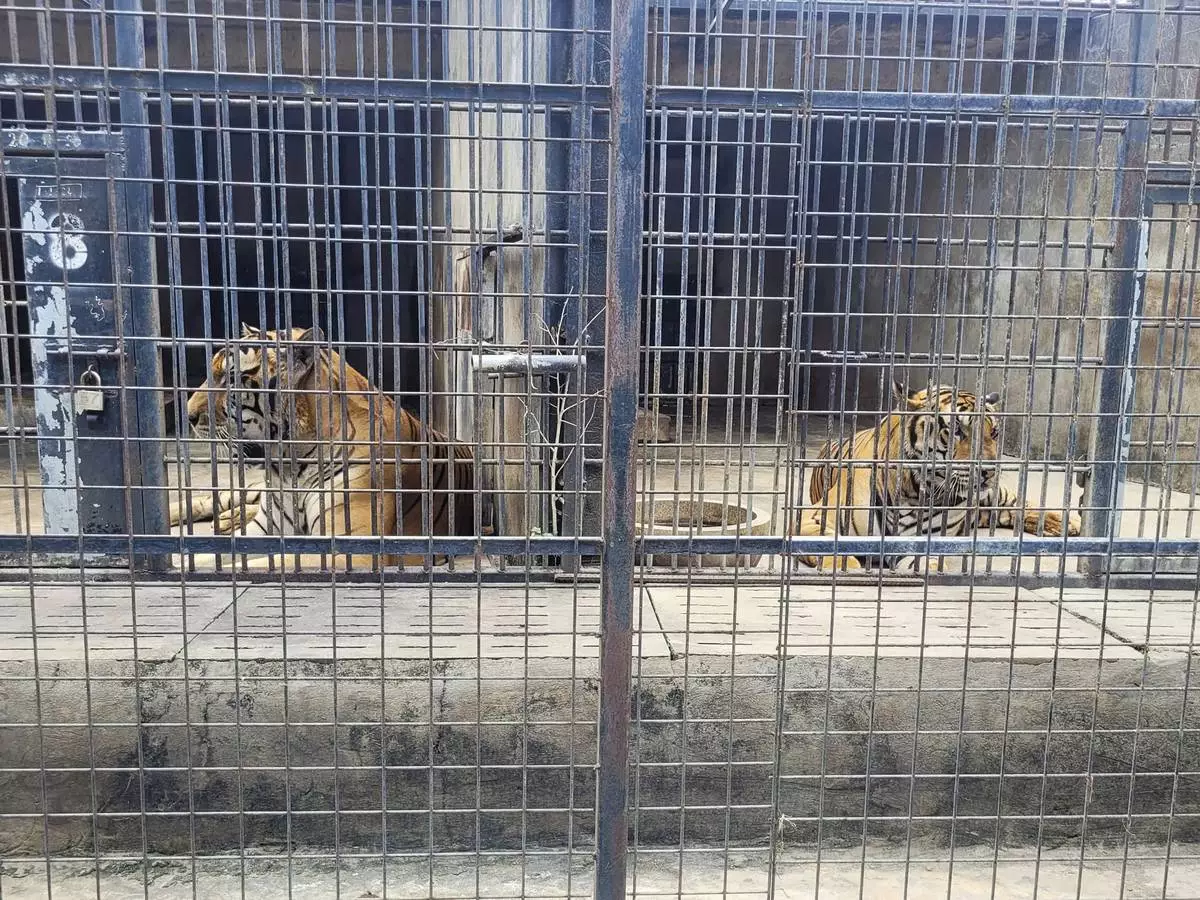
CORRECTS NAME OF ZOO- Tigers are kept in cages at Vuon Xoai zoo in Bien Hoa city, Vietnam on Thursday, Oct. 3, 2024. (Phuoc Tuan/VNExpress via AP)
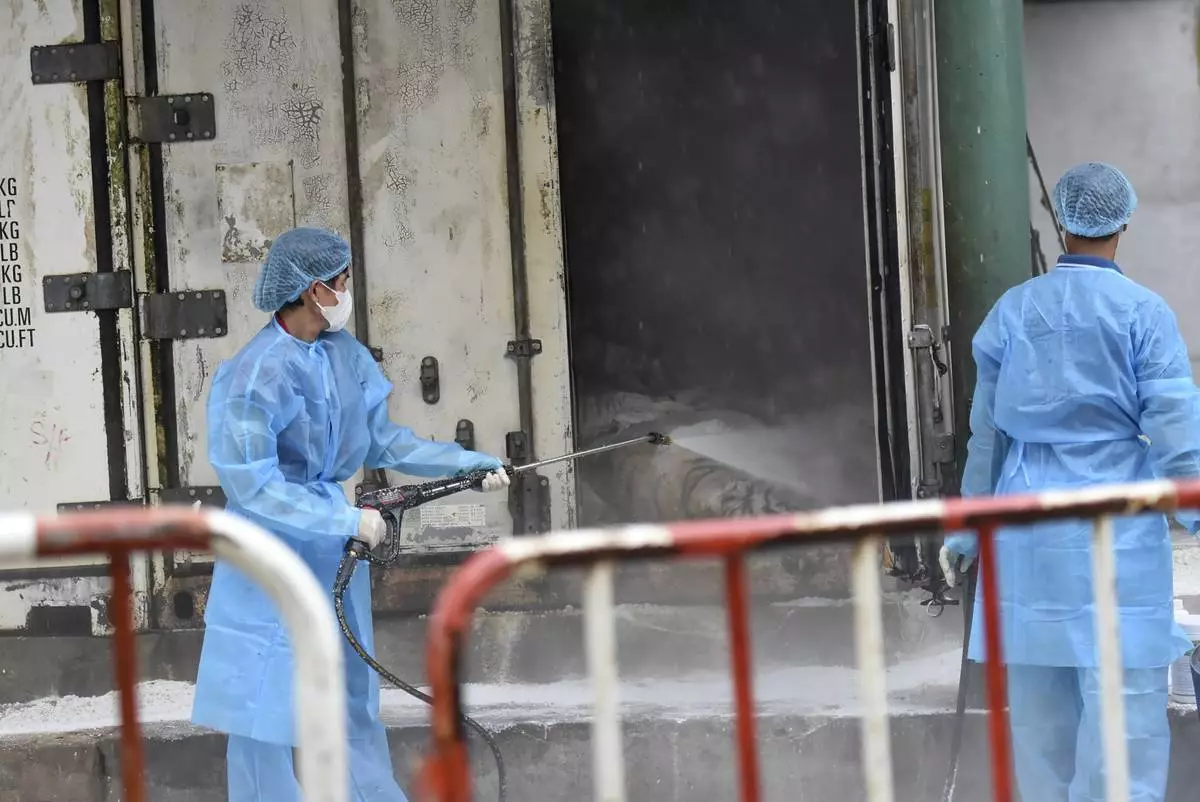
Animal health workers spray disinfectant after tigers died of bird flu at Dong Xoai zoo in Bien Hoa city, Vietnam on Thursday, Oct. 3, 2024. (Phuoc Tuan/VNExpress via AP)
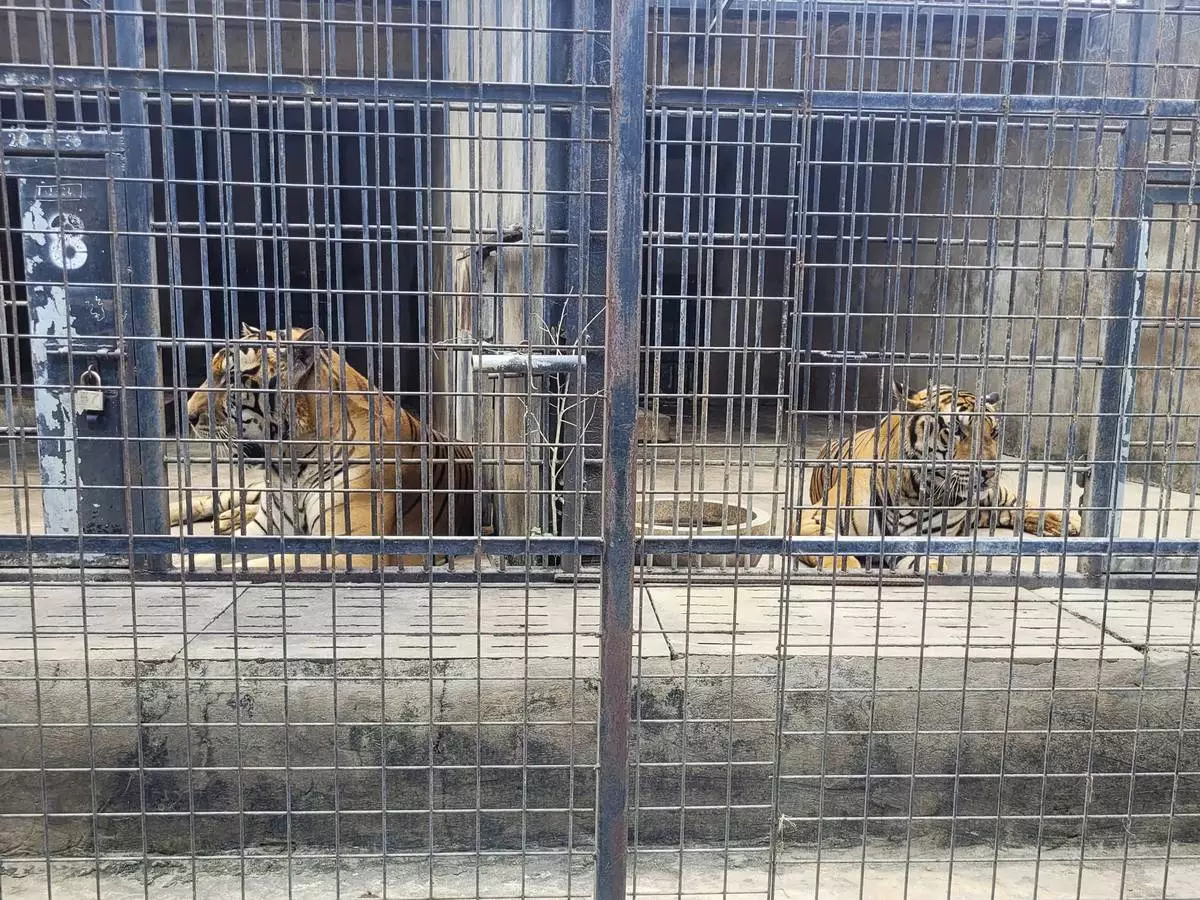
Tigers are kept in cages at Dong Xoai zoo in Bien Hoa city, Vietnam on Thursday, Oct. 3, 2024. (Phuoc Tuan/VNExpress via AP)
WASHINGTON (AP) — The Senate passed legislation early Saturday to boost Social Security payments for millions of people, pushing a longtime priority for former public employees through Congress in one of its last acts for the year.
The bipartisan bill, which next heads to President Joe Biden, will eliminate longtime reductions to Social Security benefits for nearly 3 million people who receive pensions from work in federal, state and local government, or public service jobs like teachers, firefighters and police officers. Advocates say the Social Security Fairness Act rights a decades-old disparity, though it will also put further strain on Social Security Trust Funds.
The legislation has been decades in the making but the push to pass it came together in the final weeks — and was completed in the final hours — that lawmakers were in Washington before Congress resets next year. All Senate Democrats except one, as well as 23 Republicans, supported the push to bring it to a final vote in the Senate. The final vote was 76-20.
Senate Majority Leader Chuck Schumer, D-N.Y., called it “very important for our retired teachers and firefighters and postal workers and police officers and so many other public servants who deserve their full Social Security benefits.”
The bill repeals two provisions — the Windfall Elimination Provision and the Government Pension Offset — that limit Social Security benefits for certain recipients if they receive retirement payments from other sources such as the public retirement program for a state or local government.
“Social Security is a bedrock of our middle class. It’s retirement security that Americans pay into and earn over a lifetime," said Sen. Sherrod Brown, an Ohio Democrat who has pushed for the proposal for years and will leave Congress after losing reelection.
He added that the current restrictions make “no sense. These workers serve the public. They protect our communities. They teach our kids. They pay into Social Security just like everyone else."
People who currently have reductions in their Social Security benefits under the exceptions would soon see a boost in their monthly payments. But those increased payments would also add an estimated $195 billion to federal deficits over 10 years, according to the Congressional Budget Office.
Social Security Trust Funds were already estimated to be unable to pay out full benefits beginning in 2035, and the change will hasten the program’s insolvency date by about half a year. A typical dual-income couple retiring in 2033 would see an additional $25,000 lifetime reduction in their benefits, according to the nonpartisan Committee for a Responsible Federal Budget.
Many of the bill's opponents acknowledged that the current reductions are not fair to public service retirees, but said they could not support the bill when the entire program faces challenges.
“We caved to the pressure of the moment instead of doing this on a sustainable basis,” said Sen. Thom Tillis, a North Carolina Republican who opposed the bill.
The policy changes will also heap more work on the Social Security Administration when the agency is already at its lowest staffing level in 50 years. The agency currently has a staff of about 56,400 — the lowest level since 1972, according to an agency spokesperson — even as it serves more people than ever. The stopgap government funding bill also being considered late Friday did not include increased funding for the agency, which is currently in a hiring freeze.
Still, Republican supporters of the bill said there was a rare opportunity to address what they described as an unfair section of federal law that hurts public service retirees.
“They have earned these benefits. This is an unfair, inequitable penalty,” said Sen. Susan Collins, a Maine Republican.
GOP supporters of the bill also said they would return to work on larger fixes to Social Security. President-elect Donald Trump, however, has said he will not touch the benefits, even as his administration looks to make deep budget cuts elsewhere.
Senate Republicans are nonetheless working on ideas that would put the program on better financial footing, but also inevitably require a scale-back in benefits. One fiscal hawk, Sen. Rand Paul, pushed Friday for a proposal to gradually raise the Social Security retirement age to 70, although a vote to add that provision to the bill only received three votes in favor of it.
“There's so much riding on us getting this right and having the courage to fix Social Security over the next few years,” Tillis said. “We will rue the day that we failed to do it.”
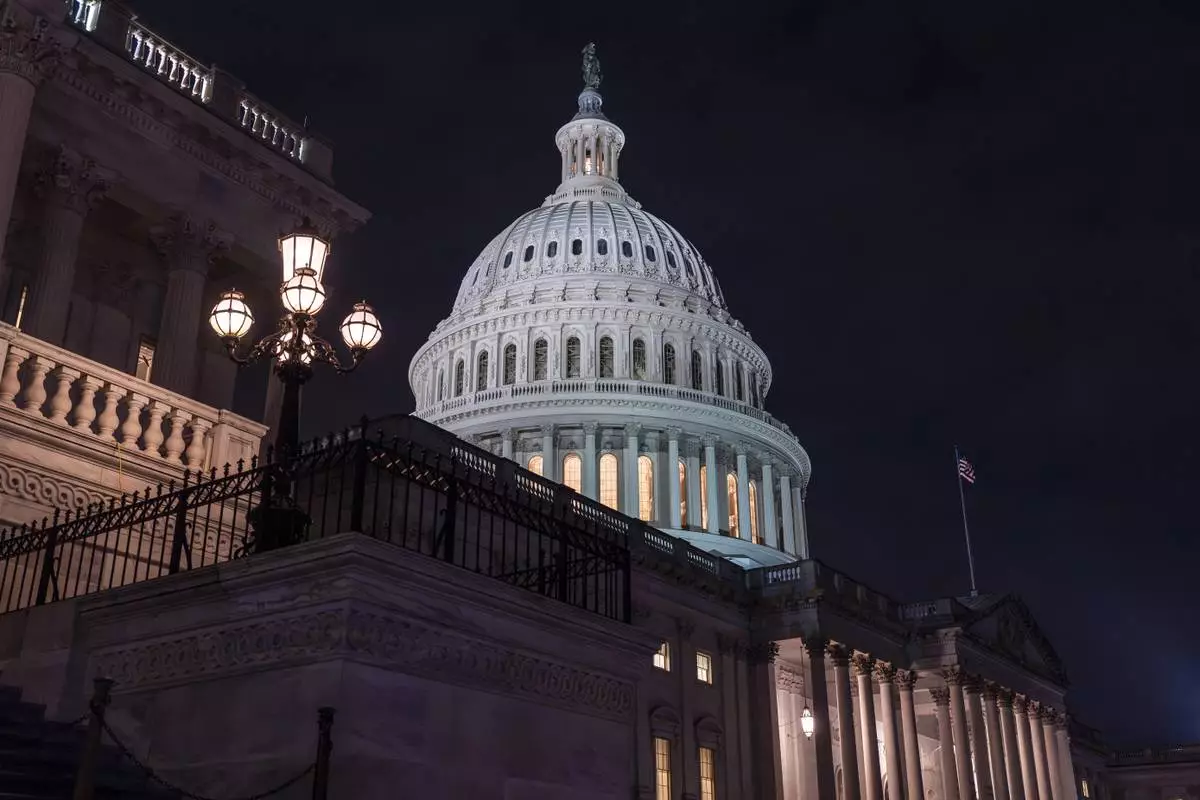
The Capitol is pictured in Washington, Friday, Dec. 20, 2024. (AP Photo/J. Scott Applewhite)






